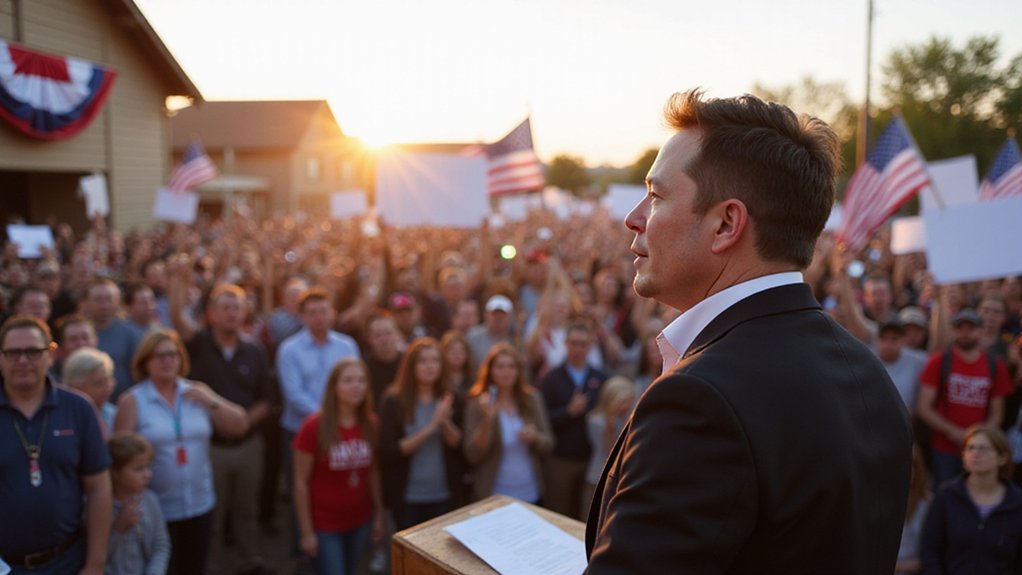When billionaire contrarians decide that America’s entrenched two-party system requires disruption, they typically write larger checks to existing candidates rather than launch quixotic third-party ventures—but Elon Musk, whose relationship with conventional political wisdom mirrors his approach to rocket engineering, has chosen the more spectacular path.
The America Party, officially announced via X in early July 2025 with a promise to “give you back your freedom,” emerged from the smoldering wreckage of Musk’s relationship with Donald Trump. This dramatic pivot follows Musk’s vociferous opposition to Trump-endorsed tax and spending legislation—legislation that apparently violated the Tesla CEO’s fiscal sensibilities developed during his tenure leading the Department of Government Efficiency (DOGE). Trump’s escalating response included threats to cut off subsidies to Musk’s companies amid their increasingly public feud.
When fiscal sensibilities collide with political loyalty, even billionaire kingmakers discover that principles can prove more expensive than campaign contributions.
Musk’s X poll, which attracted over 12 million votes with 60-65% supporting a new political party, suggests genuine appetite for alternatives to what he characterizes as a “one-party system” dominated by waste and graft. The irony that America’s richest man positions himself as champion of the “80% in the middle” is not lost on observers familiar with his $239 million expenditure through America PAC supporting Trump and Republicans in 2024.
The party’s strategy reveals sophisticated understanding of electoral mathematics: rather than mounting expensive statewide campaigns, they’re targeting “two or three Senate seats” and “eight to 10 House districts” with razor-thin margins. This surgical approach maximizes influence on contentious legislation while minimizing resource requirements—though maneuvering state-by-state ballot access rules presents formidable logistical challenges.
The financial architecture presents intriguing constraints. Unlike super PACs, which allowed Musk’s previous political largesse, formal political parties face Federal Election Commission donation limits well under $1 million per contributor. This regulatory framework forces even billionaires into more conventional fundraising strategies, though Musk’s personal wealth provides obvious advantages. The party’s unconventional approach reflects broader market dynamics where community-driven movements can experience rapid growth, similar to how meme coins have attracted diverse participants from retail investors to institutional players.
Whether the America Party represents genuine political innovation or merely another chapter in Musk’s ongoing feud with Trump remains unclear. What’s certain is that the party’s focus on disrupting the status quo rather than replacing the two-party system entirely suggests a more pragmatic approach than typical third-party ventures—though pragmatism has never been Musk’s defining characteristic. Historical precedent suggests the difficulty of such ventures, as Ross Perot’s 19% popular vote showing in 1992 demonstrates the challenge of translating independent support into electoral success.









